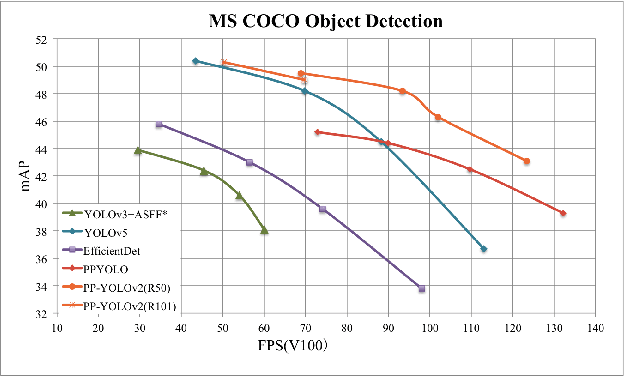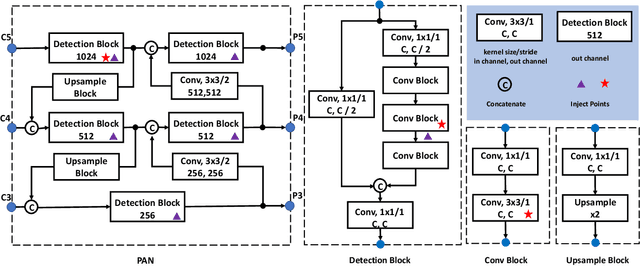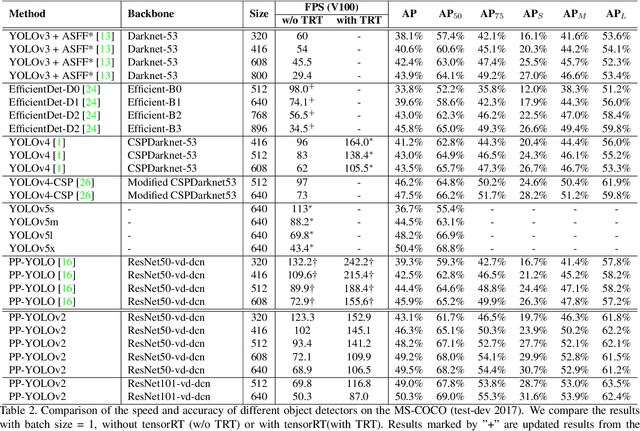Xiaying Bai
PP-YOLOv2: A Practical Object Detector
Apr 21, 2021



Abstract:Being effective and efficient is essential to an object detector for practical use. To meet these two concerns, we comprehensively evaluate a collection of existing refinements to improve the performance of PP-YOLO while almost keep the infer time unchanged. This paper will analyze a collection of refinements and empirically evaluate their impact on the final model performance through incremental ablation study. Things we tried that didn't work will also be discussed. By combining multiple effective refinements, we boost PP-YOLO's performance from 45.9% mAP to 49.5% mAP on COCO2017 test-dev. Since a significant margin of performance has been made, we present PP-YOLOv2. In terms of speed, PP-YOLOv2 runs in 68.9FPS at 640x640 input size. Paddle inference engine with TensorRT, FP16-precision, and batch size = 1 further improves PP-YOLOv2's infer speed, which achieves 106.5 FPS. Such a performance surpasses existing object detectors with roughly the same amount of parameters (i.e., YOLOv4-CSP, YOLOv5l). Besides, PP-YOLOv2 with ResNet101 achieves 50.3% mAP on COCO2017 test-dev. Source code is at https://github.com/PaddlePaddle/PaddleDetection.
Data Augmentation Imbalance For Imbalanced Attribute Classification
May 21, 2020



Abstract:Pedestrian attribute recognition is an important multi-label classification problem. Although the convolutional neural networks are prominent in learning discriminative features from images, the data imbalance in multi-label setting for fine-grained tasks remains an open problem. In this paper, we propose a new re-sampling algorithm called: data augmentation imbalance (DAI) to explicitly enhance the ability to discriminate the fewer attributes via increasing the proportion of labels accounting for a small part. Fundamentally, by applying over-sampling and under-sampling on the multi-label dataset at the same time, the thought of robbing the rich attributes and helping the poor makes a significant contribution to DAI. Extensive empirical evidence shows that our DAI algorithm achieves state-of-the-art results, based on pedestrian attribute datasets, i.e. standard PA-100K and PETA datasets.
 Add to Chrome
Add to Chrome Add to Firefox
Add to Firefox Add to Edge
Add to Edge